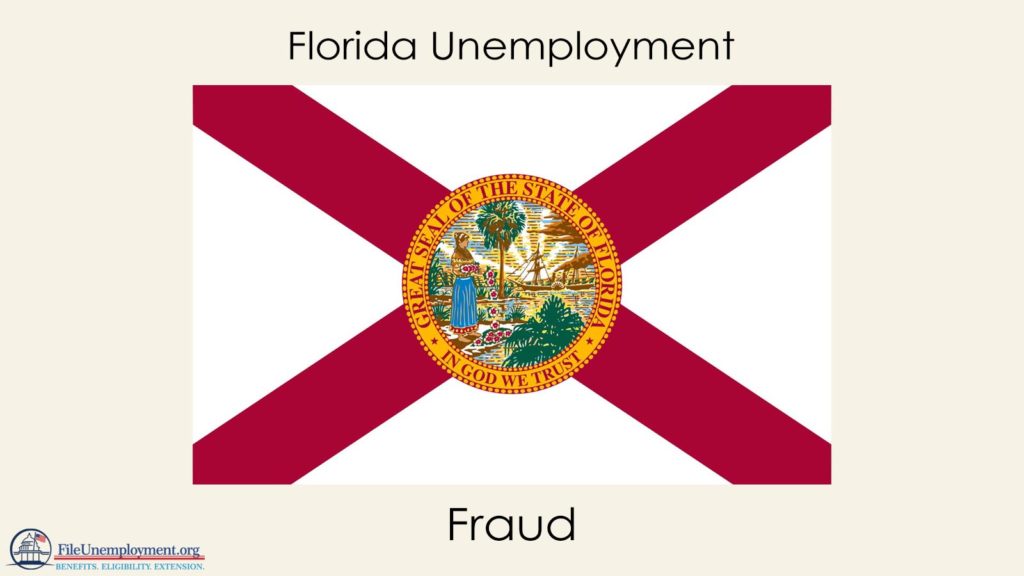Unfortunately, not all claimants collecting Reemployment Assistance are doing so honestly. This means they are committing Florida unemployment fraud. When someone misrepresents their Florida unemployment eligibility, this is fraudulent activity.
What Is Unemployment Fraud?
When applying for unemployment benefits, you must provide accurate information about your previous work experience and base period wages. You can double check your math with the Florida unemployment calculator, which lets you enter your quarterly earnings. Incorrectly reporting your wages is a form of unemployment insurance fraud.
Florida unemployment fraud can also include filling out benefit claims for someone who is incarcerated, deceased, or other forms of identity theft – essentially using stolen identities to collect unemployment compensation.
If someone has already reentered the workforce with a new job but is still collecting RA benefits, that is also considered unemployment fraud. If claimants report that they are actively looking for work and able to work, and they actually are not, this is also fraud. Remember that if you are not able to work due to an illness or disability, there are other options to explore like Social Security Disability Insurance or workers compensation.
In many cases, unemployment insurance fraud may be accidental. However, it still falls into the category of a fraudulent claim, which still has consequences with the Florida labor department and perhaps even the federal internal revenue service.
Consequences of Fraud
If you commit reemployment assistance fraud by misrepresenting wages earned during the time you collect RA benefits, or base period wages at the time of your initial application (in order to inflate your weekly benefit amount), you will need to pay that money back. In addition to returning the money, you will likely need to pay a 15% fine for the outcome of this false statement.
You won’t be able to collect any additional RA benefits until this money is returned and the fine is paid. If you can’t do that, the money may be taken from any tax refund you’d get from your tax return, even a federal tax refund.
The DEO (Florida Department of Economic Opportunity) may refer your fraud to the State Attorney for prosecution, which may result in a misdemeanor or even a grand theft. In case you’re wondering, anything over $750 is considered grand theft in Florida, and it can result in prison and a permanent criminal record.
How To Report Fraud
Do you know someone committing unemployment fraud, or suspect someone is using your personal information to do so?
You can report UI fraud by calling 1-833-FL-APPLY (1-833-352-7759).
Alternatively, you can report fraud online, either from your computer or even on your mobile phone. Remember that fraud may result in a criminal prosecution referral and potential jail time. When using the online form, you will be asked to answer a series of questions to pinpoint the exact nature of the fraud for a follow-up.
Identity Theft
Identity theft occurs when someone is using your personal information to steal Florida unemployment benefits. Signs that you might be the victim of identity fraud include receiving an unemployment debit card or direct deposit when you never applied for RA benefits, or receiving a 1099-G tax form when you never applied or collected benefits.
If you go to apply for RA benefits and are told that your Social Security Number has already been used to apply, that’s a big red flag. If your employer receives a request for information about an unemployment claim but you haven’t been fired and still work for this employer, that’s also a red flag.
And lastly, if an employer receives a quarterly charge statement for a former employee who has not filed an RA claim, or an individual who has never worked for them, this is also a red flag. Employers should consider following up with former employees to verify charge statements.
How To Protect Yourself from Florida Unemployment Fraud
Sometimes, unemployment fraud doesn’t seem to be directly related to collecting UI benefits. You may not even notice a red flag…especially if you never applied for unemployment benefits. Unscrupulous people collecting unemployment insurance under your name could be doing so without you ever knowing, having obtained your personal information in a roundabout way that takes you by surprise.
Do not engage with any suspicious texts, emails, and phone calls requesting personal or financial information. Check the name associated with the email, or the web address to make sure it looks legitimate. These scams are often ways that are used to mine personal information from unsuspecting parties. Guard your personal information strongly, such as your Social Security number. Shred and destroy financial and personal records you don’t need anymore, as well as credit card or loan offers.
It’s a good idea to proactively check your credit report. This is because using stolen identities is not just limited to fraudulent unemployment insurance claims, but often involves using them to apply for credit or loans. There are also services such as those provided by your insurance company or financial institution to proactively monitor your credit and help you avoid becoming an identity theft victim.





